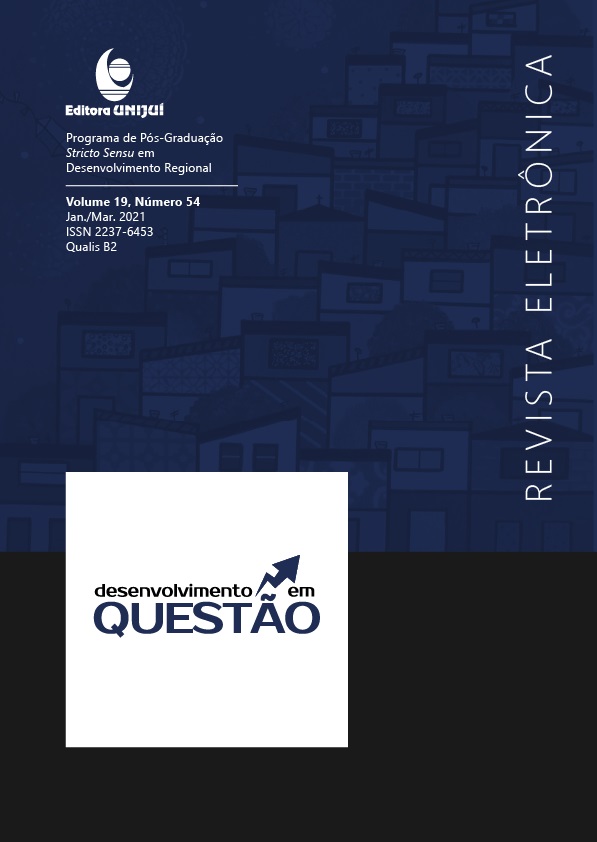The Expansion of a Social Innovation Initiative: an analysis from process and result perspectives
DOI:
https://doi.org/10.21527/2237-6453.2021.54.335-352Keywords:
Social innovation. Collaboration Networks. Microcephaly. Zika virus.Abstract
This article aims to analyze the dissemination of a social innovation initiative, through a collaborative network, which has as its agglutinating point an association of families that aim to develop public policies directed to children affected by microcephaly. The study was guided by qualitative indicators, using Medeiros model (2018) as the guiding reference of the analysis, which is based on both process and result approaches of social innovation. Field collection involved primary and secondary data, which were discussed, respectively, through categorical content analysis and document analysis. The analysis made it possible to infer that the studied initiative has followed a line of expansion of its practices following a feedback system: the social change achieved in the territories arises as a result of the emerging social practices, obtained through the formed collaboration network (process), which It has provided new local responses to the beneficiaries of the initiative (outcome), such as actions by civil society and Government with the aim of providing social inclusion for children and improving their living conditions.
Downloads
Published
How to Cite
Issue
Section
License
By publishing in Revista Desenvolvimento em Questão, authors agree to the following terms:
All works are published under the Creative Commons Attribution 4.0 International License (CC BY 4.0), which allows:
Sharing — to copy and redistribute the material in any medium or format;
Adaptation — to remix, transform, and build upon the material for any purpose, even commercially.
These permissions are irrevocable, provided that the following terms are respected:
Attribution — authors must be properly credited, a link to the license must be provided, and any changes made must be indicated.
No additional restrictions — no legal or technological measures may be applied that legally restrict others from doing anything the license permits.
Notices:
The license does not apply to elements that are in the public domain or covered by legal exceptions.
The license does not grant all necessary rights for specific uses (e.g., image rights, privacy, or moral rights).
The journal is not responsible for the opinions expressed in the articles, which are the sole responsibility of the authors. The Editor, with the support of the Editorial Board, reserves the right to suggest or request modifications when necessary.
Only original scientific articles presenting research results of interest that have not been previously published or simultaneously submitted to another journal with the same purpose will be accepted.
Mentions of trademarks or specific products are intended solely for identification purposes and do not imply any promotional relationship by the authors or the journal.
License Agreement (for articles published from 2025 onward): Authors retain the copyright to their article and grant Revista Desenvolvimento em Questão the right of first publication.











